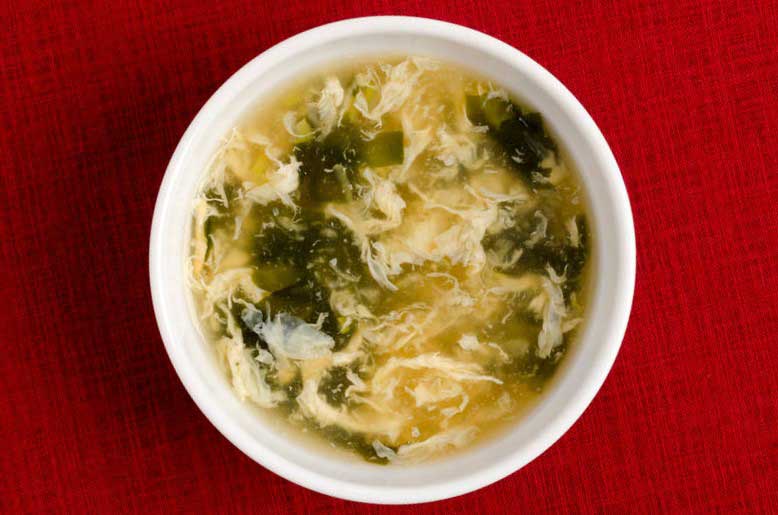Among the options for gastric bypass recovery, egg drop soup emerges as a highly beneficial choice. This light, protein-packed soup not only aligns with the diet restrictions post-surgery but also offers gentle nourishment, minimizing the risk of digestive discomfort. In this article, we’ll explore why egg drop soup is ideal for gastric bypass recovery, provide a step-by-step bariatric recipe, and offer tips on adapting it to maximize nutritional benefits.

Why egg drop soup is ideal for gastric bypass recovery
Egg drop soup is a popular choice for post-surgery patients because it’s easy on the stomach and high in protein, which aids in tissue repair and muscle preservation. The simplicity of this dish allows it to be gentle on the digestive tract, making it less likely to cause bloating or discomfort, a common issue when reintroducing foods. The protein in egg whites supports healing, while the light broth keeps you hydrated, two essentials for gastric bypass patients.
Additionally, egg drop soup is low in calories and fats, aligning with the restricted caloric intake advised post-surgery. Unlike heavier meals, it helps you feel full without overwhelming the stomach. The easy preparation and versatility of egg drop soup also make it a convenient option for those with busy schedules or limited energy during recovery.
Key nutritional benefits of egg drop soup for bariatric patients
Egg drop soup contains simple yet effective ingredients that offer key nutrients for those recovering from gastric bypass:
- Protein: The egg whites are a high-quality protein source that supports muscle repair and maintains lean body mass.
- Amino acids: These building blocks aid in tissue regeneration and overall healing.
- Sodium and electrolytes: Many recipes incorporate a low-sodium broth, providing necessary electrolytes without excess salt, aiding in hydration and preventing muscle cramps.
- Low-calorie content: This soup provides satiety with minimal calories, helping you stay on track with your post-surgery diet goals.
Including a food like egg drop soup in your diet helps ensure that you receive these essential nutrients, supporting a smoother recovery and minimizing risks related to nutritional deficiencies, which are common concerns for bariatric patients.
Step-by-step recipe: Preparing the perfect egg drop soup
For a nutritious, gastric bypass-friendly egg drop soup, follow this easy recipe:
Ingredients:
- 4 cups low-sodium chicken or vegetable broth
- 2 large egg whites, lightly beaten
- 1/4 teaspoon ginger powder (optional, for digestive comfort)
- 1/4 teaspoon white pepper or to taste
- Chopped green onions or chives for garnish (optional)
Instructions:
- Heat the broth: Bring the low-sodium broth to a gentle boil in a medium pot.
- Add spices: Stir in ginger powder and white pepper for flavor. These are optional but add warmth and mild spice without irritating the stomach.
- Add egg whites: Slowly pour the beaten egg whites into the pot while gently stirring with a fork or chopstick. This creates the classic “egg drop” ribbons in the soup.
- Simmer: Let the soup simmer for 1-2 minutes, then remove from heat. Avoid overcooking the eggs to retain a soft texture.
- Serve: Garnish with chopped green onions or chives, if desired, for added color and a hint of flavor.
This simple recipe can be prepared in under 10 minutes, making it ideal for quick meals during recovery. It’s important to consume the soup warm, not hot, to avoid irritation.
Customizing your egg drop soup for variety and taste
Although egg drop soup is straightforward, it can be customized with nutrient-dense ingredients that maintain its lightness and digestibility. Here are some ways to modify the recipe:
- Add soft vegetables: Lightly cooked or blended spinach, zucchini, or carrots can be added to the broth for additional vitamins.
- Protein boost: Mix in a small amount of protein powder that blends well with liquids. Choose a flavorless, bariatric-friendly protein supplement.
- Alternative spices: Ginger and turmeric are excellent options that add anti-inflammatory benefits. Use sparingly to avoid overwhelming the taste or irritating the stomach.
Adjusting these ingredients allows for variety without compromising the soup’s digestibility. This is especially useful as you progress in your recovery, introducing new flavors and nutrients at a pace that suits your body’s needs.
Important considerations when consuming egg drop soup post-surgery
When adding egg drop soup to your diet, keep these tips in mind to maximize benefits and avoid complications:
- Portion size: Start with small portions, around half a cup, and gradually increase as tolerated. Overeating too soon can cause discomfort.
- Temperature: Warm soup is ideal as extremely hot or cold temperatures may irritate the stomach.
- Frequency: Include egg drop soup a few times a week as part of a balanced diet. Over-relying on any single food can lead to nutrient imbalances.
Keeping these points in mind ensures that the soup remains a beneficial, well-tolerated part of your recovery diet.
Tips for reintroducing solid foods after liquid diets
Transitioning from liquid to solid foods can be challenging. Egg drop soup serves as an excellent bridge between these phases because of its semi-solid consistency. Here’s how to ease this transition:
- Start with pureed or soft foods: Incorporate foods like mashed potatoes or smooth yogurt, gradually increasing texture over time.
- Chew thoroughly: Even for soft foods, chewing helps prepare the stomach for digestion.
- Monitor portion sizes: Begin with smaller amounts to gauge your body’s reaction and prevent discomfort.
Using egg drop soup as a staple in this phase allows for consistent protein intake while adjusting to more solid textures.
Common mistakes to avoid in post-bariatric diets
Avoiding certain pitfalls can enhance your recovery and dietary success:
- Rushing food introduction: Introducing solids too soon can strain the digestive system.
- Ignoring protein intake: Protein supports muscle and tissue repair, so it’s vital in every meal.
- Consuming large portions: Start small and eat slowly to allow the stomach to adjust.
Egg drop soup aligns well with these guidelines, as its light nature and protein content make it easy to include without risking common dietary mistakes.
Egg drop soup alternatives for gastric bypass patients
Although egg drop soup is excellent, variety is key. Here are a few alternative soup options with similar benefits:
- Bone broth with added soft vegetables: High in protein and easy to digest, bone broth supports healing and offers hydration.
- Miso soup: A low-calorie, gut-friendly option, but ensure it’s not too high in sodium.
- Chicken or beef broth with egg: Similar to egg drop soup, whisk an egg into broth for a quick, protein-rich soup.
These alternatives provide diversity, supporting nutritional needs while preventing meal monotony.
Long-term diet strategies for sustained health post-gastric bypass
After initial recovery, long-term dietary habits will play a crucial role in sustaining your health. Incorporate balanced, high-protein meals like egg drop soup periodically as a low-calorie option that supports your weight and nutritional goals. Regularly including nutrient-dense foods, avoiding high-sugar and processed foods, and staying hydrated are key to maintaining your health.
Additionally, consider consulting a dietitian specializing in bariatric care to adjust your diet as you progress, ensuring all nutritional needs are met without overburdening the stomach.








